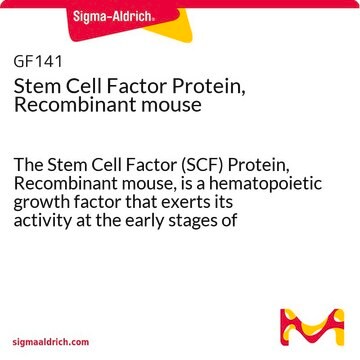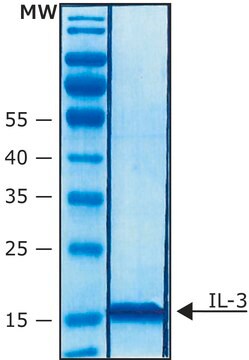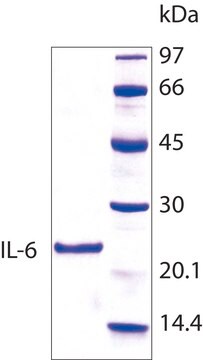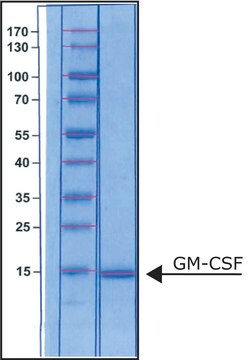I4144
Interleukin-3 from mouse
IL-3, recombinant, expressed in E. coli, lyophilized powder, suitable for cell culture
Synonym(s):
IL-3, mIL-3, Interleukin-3 from mouse
About This Item
Recommended Products
biological source
mouse
Quality Level
recombinant
expressed in E. coli
Assay
≥98% (SDS-PAGE)
form
lyophilized powder
potency
0.01-0.1 ng/mL ED50/EC50
quality
endotoxin tested
mol wt
15.1 kDa
packaging
pkg of 10 and 50 μg
technique(s)
cell culture | mammalian: suitable
impurities
≤1.000 EU/μg
color
white to yellow
UniProt accession no.
storage temp.
−20°C
Gene Information
mouse ... Il3(16187)
Related Categories
General description
Application
Biochem/physiol Actions
Physical form
Analysis Note
Storage Class Code
11 - Combustible Solids
WGK
WGK 3
Flash Point(F)
Not applicable
Flash Point(C)
Not applicable
Personal Protective Equipment
Certificates of Analysis (COA)
Search for Certificates of Analysis (COA) by entering the products Lot/Batch Number. Lot and Batch Numbers can be found on a product’s label following the words ‘Lot’ or ‘Batch’.
Already Own This Product?
Find documentation for the products that you have recently purchased in the Document Library.
Customers Also Viewed
Articles
The Interleukins comprise a disparate group of cytokines and growth factors that are produced by and released from leukocytes. Interleukin-1β (1L-1β) is released primarily from stimulated macrophages and monocytes and plays a key role in inflammatory and immune responses and may induce anti-tumor immunity.
Our team of scientists has experience in all areas of research including Life Science, Material Science, Chemical Synthesis, Chromatography, Analytical and many others.
Contact Technical Service










